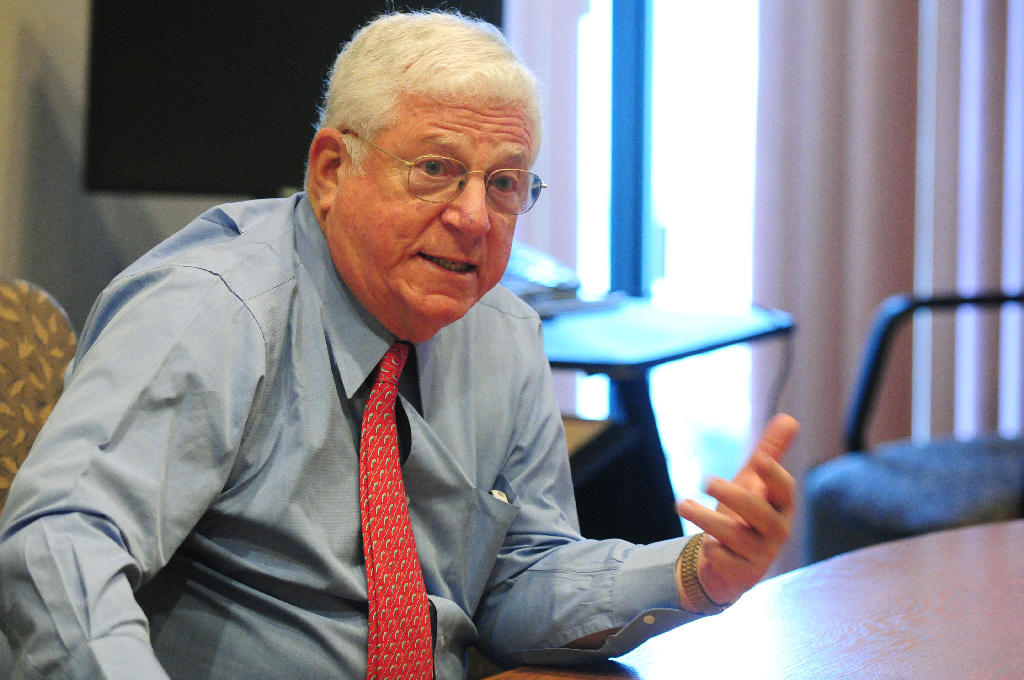Richard Ravitch was one day past his 76th birthday when he became New York’s lieutenant governor 14 years ago this week, under the most bananas circumstances imaginable: In order to end the state Senate’s “coup crisis” — in which the Republican minority attempted to peel off two of the Democratic conference’s most odious members, plunging the chamber into more than a month of chaos — Gov. David Paterson made the then-unprecedented decision to appoint his own No. 2.
Ravitch, a successful businessman who had played a key role in the rescue of New York City from fiscal insolvency in 1975, was a compelling choice — a grownup in a riot of squabbling senators. His resume included work on the nation’s urban policies for President Lyndon Johnson, serving as commissioner of the Metropolitan Transit Authority, and negotiating for Major League Baseball’s owners.
Paterson initially tapped him following the 2008 Wall Street meltdown to do for the state what Gov. Hugh Carey had tasked him with doing for New York City in 1975. Following his battlefield promotion to lieutenant governor — famously consummated not on the battlefield but in the elegant setting of Brooklyn’s Peter Lugar Steak House — Ravitch used his platform to pitch the idea of letting the state borrow to fend off the potential damage of draconian spending cuts.
It was never seriously considered by Paterson or the Legislature; Ravitch, who died last week at age 89, seemed happy to leave office after less than 18 months.
As his 80th year came and went, Ravitch gave me even more reasons to interview him: He was helping Detroit climb out of its similarly dire fiscal crater; writing the memoir “So Much to Do” (“I wish the Times Union had a circulation of 100 million,” he wrote in my copy); and working alongside former Federal Reserve chair Paul Volcker on the State Budget Crisis Task Force.
When I spoke to him about…
Read the full article here

Leave a Reply